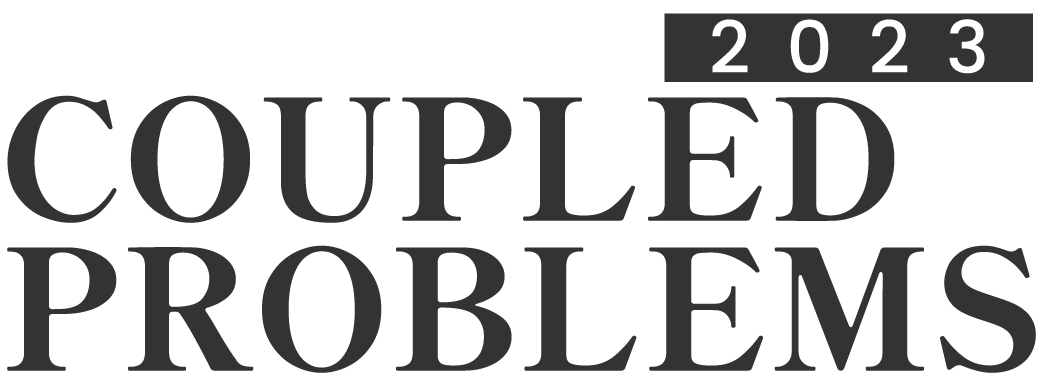

A Unified Multiphysics Framework for Multi-Region Coupling
Please login to view abstract download link
We have developed a novel unified solver framework for computational multiphysics of multi-region coupling type, i.e. transport processes coupled across region boundaries/interfaces. The code design is such that a multiphysics problem can be assembled region-by-region, and the coupling conditions interface-by-interface. Both monolithic and partitioned coupling is at user's choice for each transport equation individually. Fluid flow problems are dealt with using SIMPLE, PISO and PIMPLE pressure-velocity algorithms - with loops of predictor and corrector steps across regions. The code is implemented as C++ library in OpenFOAM (FOAM-extend 4.1) for computational continuum physics and follows the principles of object-oriented programming. We incorporate user-defined types of regions representing sub-domains of specific physics i.e. a set of transport equations. Such a region type should govern a meaningful subset of physics specific to the region -- such as e.g. fluid flow, solid mechanics, species transport or energy transport -- and can be combined with others. This results into a modular concept and allows to assemble a multiphysics problem region-by-region. The coupling and communication between regions is realised in a likewise modular fashion where interface-specific physics as well as interpolation/mapping methods are accessible in boundary conditions. The implementation is readily parallelised for all medium and large scale computations in domain decomposition mode for runs on distributed-memory parallel computer architectures. The suggested unified framework shall lay ground for a variety of multiphysics applications, such as Conjugate Heat Transfer (CHT), multi-material Arbitrary Lagrangian Eulerian (ALE) methods, Fluid-Structure-Interactions (FSI), battery and fuel cells models, etc. In the present contribution we will focus on the underlying general mathematical model formation of these kind of multiphysics problems, and on this basis on the software design and resulting code structure allowing for a flexible and modular approach. Finally, we demonstrate its deployment for different multi-region coupling cases.

